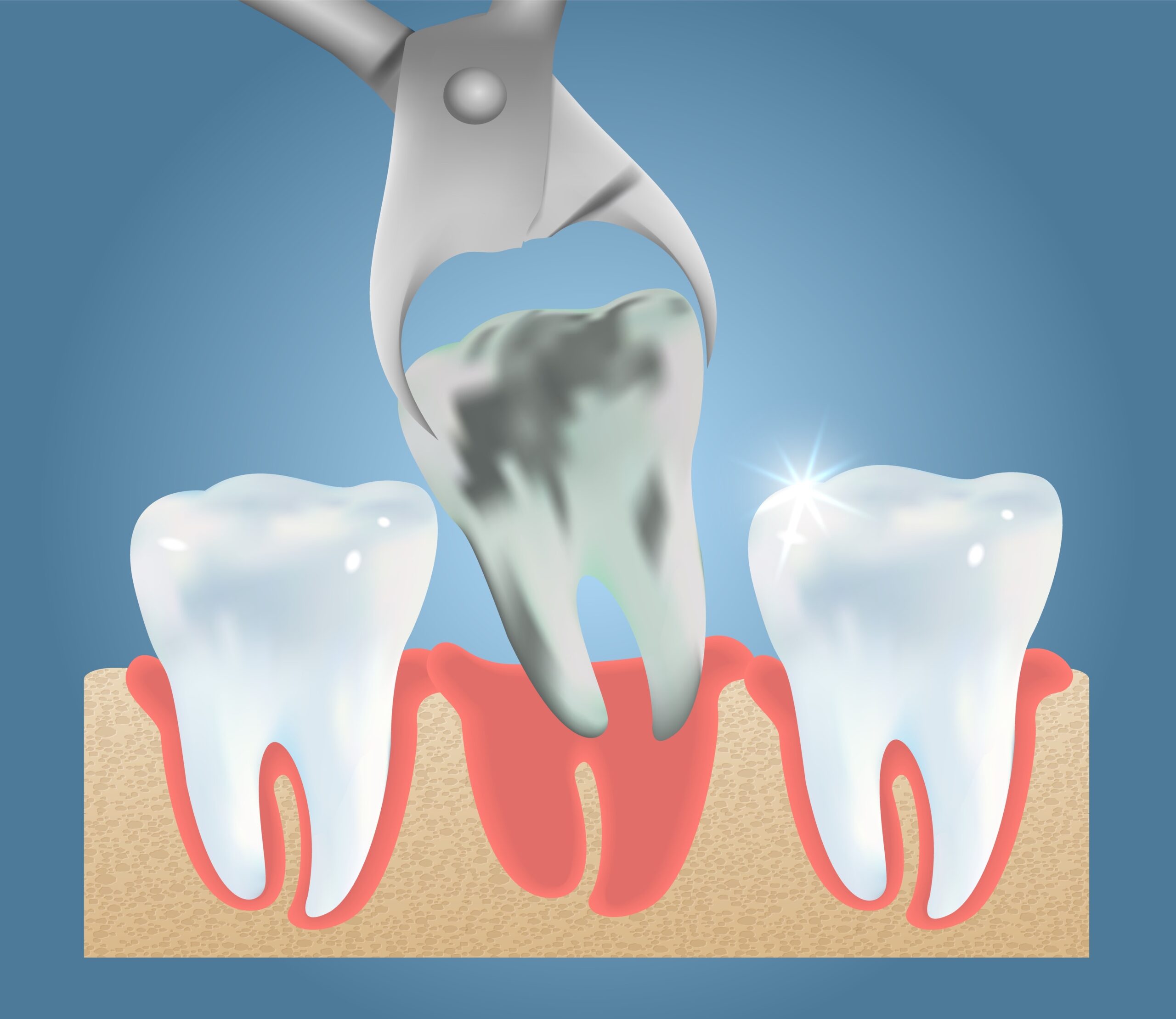
Tooth Extraction
Permanent teeth are designed to last a lifetime. However, there may be circumstances in which extraction may be necessary. When a tooth is too badly damaged due to decay or trauma, it may be impossible to repair. Teeth may also be pulled due to a crowded mouth or an oral infection. This can be performed by your Melbourne FL dentist and is typically a quick outpatient procedure. Learn how the tooth extraction procedure is performed, what the recovery period is like, and how to determine if you need one.
How Is an Extraction Performed?
Before a tooth extraction, your Melbourne Florida dentist will perform an extensive exam to check the condition of your teeth. Dental x-rays may also be taken to help determine the best type of tooth extraction. There are two main types of tooth extractions:
- Simple Extraction – A simple extraction is usually performed when the affected tooth is damaged and visible. This is an outpatient procedure that will take an average of 30 minutes to complete
- Surgical Extraction – A surgical extraction is a more complex procedure that is usually performed when the tooth is not visible above the gum line, such as with a severely damaged tooth or impacted tooth. During a surgical extraction, anesthesia is typically administered at the onset of the procedure.
The steps involved in this dental procedure will depend on the type you are having
With a simple tooth extraction, the dentist will typically numb the tooth and gum tissue with a local anesthetic. She’ll then loosen the tooth with an instrument known as an elevator. Finally, dental forceps are used to remove the tooth from the mouth. During a surgical extraction, the dentist will make a small incision in the gum and remove the tooth, usually in several pieces.
What Happens After a Dental Extraction?
One of the most important aspects of the tooth extraction procedure is aftercare. It is essential to keep the affected area clean to prevent infection. Directly following the procedure, you’ll be asked to bite down on a sterile piece of dry gauze. Continue to bite down for 30 to 45 minutes to minimize bleeding and allow clotting to take place.
Avoid rinsing out your mouth vigorously or cleaning near the extraction site. Your dentist will provide you with detailed instructions on how to properly care for your mouth during recovery. It is common to experience some pain or discomfort after tooth extraction. Your dentist may recommend taking an over-the-counter pain reliever or may prescribe some for you.
During tooth extraction recovery, limit any strenuous activity that could encourage bleeding. Avoid hot liquids and do not drink through a straw, as this could dislodge a blood clot. Discomfort should begin to lessen within three days following the tooth extraction procedure. If you experience severe or prolonged pain, fever, bleeding, or swelling, immediately contact your dentist.
Some other aftercare tooth removal tips include:
- Continue to brush your teeth after but avoid the extraction area
- Do not smoke
- Use a salt solution to rinse your mouth after the first 24 hours
- Prop your head while sleeping to promote healing
- Do not spit or rinse your mouth for 24 hours after the procedure
- Don’t physically exert yourself and try to rest for a couple of days if possible
When an Extraction is Necessary
This is usually a last resort. Dentists will try to save a natural tooth before resorting to an extraction. However, some situations may result in the need, such as teeth that are partially erupted, like impacted wisdom teeth.
Extraction may also be necessary if you have severe tooth damage caused by decay or trauma that cannot be repaired with root canal therapy. Periodontitis, a disease that affects the bones and tissues that hold the teeth in place, can also result in an extraction.
Schedule an Appointment Today
While it is not the ideal solution for every patient, this is used to stop pain and other complications for some. For more information or to schedule an appointment to speak about your oral health concerns, contact Artistic Touch Dentistry.

